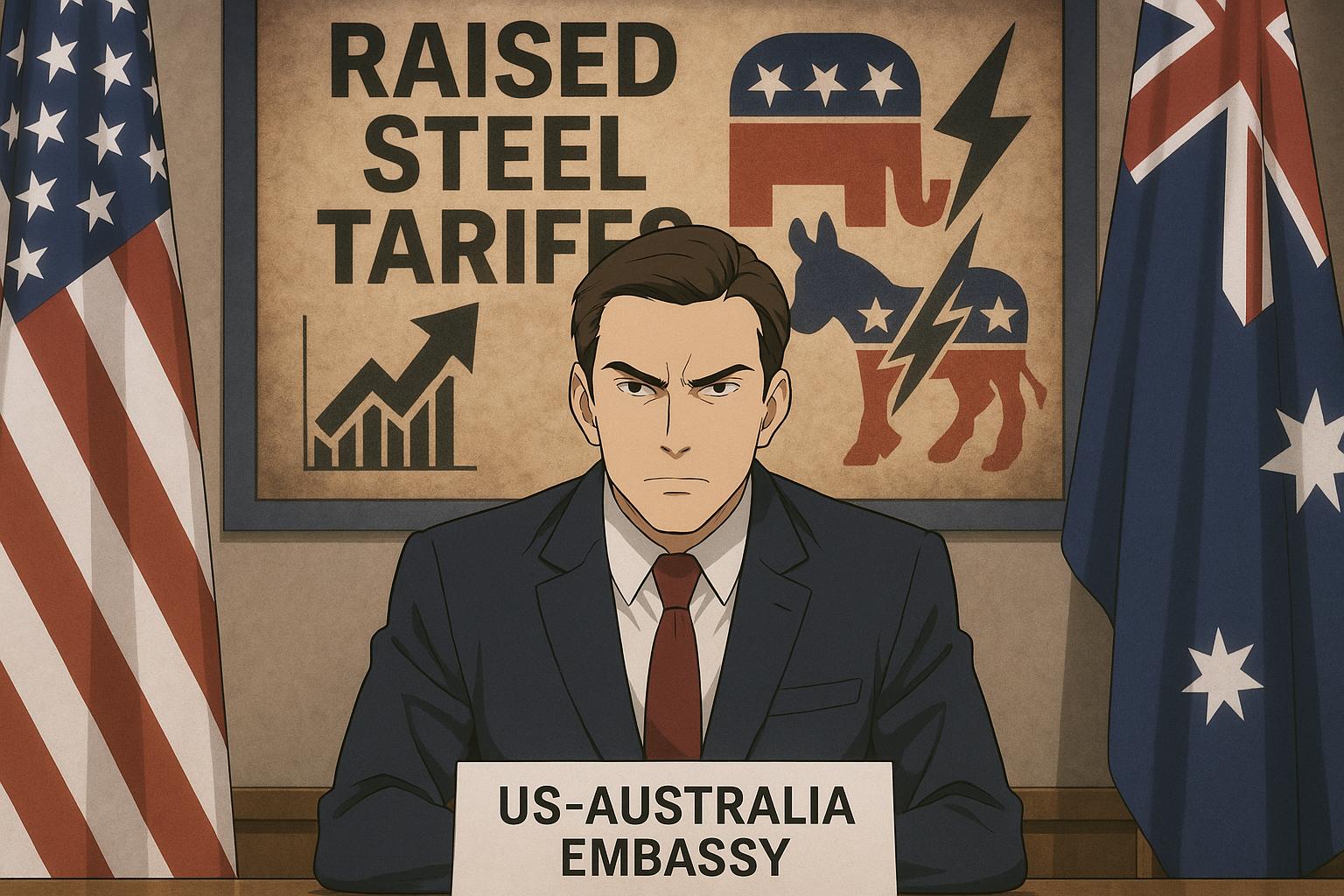In recent discussions about the effectiveness of Kevin Rudd’s role as Australia’s ambassador to the United States, scrutiny has intensified, particularly in light of former President Donald Trump’s announcement to raise tariffs on steel imported into the US. Sunrise host Nat Barr sparked debate on the potential need for reevaluating Rudd's position, questioning if he might be better suited elsewhere given the tumultuous trade relationship between the two countries.
Trump's proposed tariffs, which would increase from 25% to a staggering 50% starting June 4, have raised alarms regarding the future of US-Australia trade. During a televised segment, Barr posed a pointed question to Social Services Minister Tanya Plibersek and former Deputy Prime Minister Barnaby Joyce, asking whether it could be time to "axe" Rudd and consider a different ambassadorial approach to engage with the Trump administration.
Defending Rudd's tenure, Plibersek praised his proactive stance and the strong relationships he has nurtured across political divides, asserting that he demonstrates considerable dedication and effectiveness as an ambassador. She highlighted that the Australian government selects its ambassadors independently, suggesting that the effectiveness of such roles should not be solely evaluated by how other nations respond.
In a striking contrast, Joyce expressed reservations about Rudd's impact in Washington, asserting that the former Prime Minister is "not kicking a goal" and should perhaps be repositioned to a different diplomat role, possibly in London. His remarks raised pivotal concerns about whether Rudd has managed to secure favourable outcomes for Australia amidst a challenging trade environment and shifting political landscape.
Complicating the narrative is the backdrop of Rudd’s prior criticisms of Trump, which he subsequently deleted following Trump's 2024 re-election victory, a move interpreted by some as an attempt to align more closely with the current administration and salvage bilateral relations. Rudd’s adjustment of stance indicates the delicate balancing act any ambassador must undertake in navigating national interests while upholding diplomatic decorum.
Foreign Minister Penny Wong has also publicly expressed confidence in Rudd’s ability to foster effective collaborations with the Republican administration, reaffirming the significance of the AUKUS military alliance and broader strategic objectives shared by both nations. Despite earlier misgivings about Rudd's past comments on Trump, Prime Minister Anthony Albanese has emphasised the importance of maintaining strong ties with the US and has reaffirmed his support for Rudd’s appointment.
While praises for Rudd’s hard work and aptitude resonate within some governmental quarters, public discourse continues to question whether his skills are adequately translated into tangible benefits for Australia, particularly as protectionist policies loom in US trade dialogue. The outcome of this diplomatic relationship hinges on the ambassador's capacity to engage effectively with a government pursuing aggressive trade policies, making Rudd's role critical in the coming months.
As the political landscape evolves, the discussion around Rudd's effectiveness raises broader questions about diplomatic strategy and alignment in an increasingly complex global arena. How Australia navigates its trade interests during these turbulent times remains to be seen, and whether Rudd can bridge the gap between the Australian government’s aspirations and US policy will be pivotal in shaping future relations.
Reference Map:
- Paragraph 1 – [1], [5]
- Paragraph 2 – [1], [2], [4]
- Paragraph 3 – [3], [6]
- Paragraph 4 – [7]
- Paragraph 5 – [4], [6]
Source: Noah Wire Services
